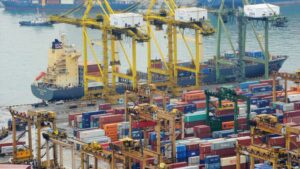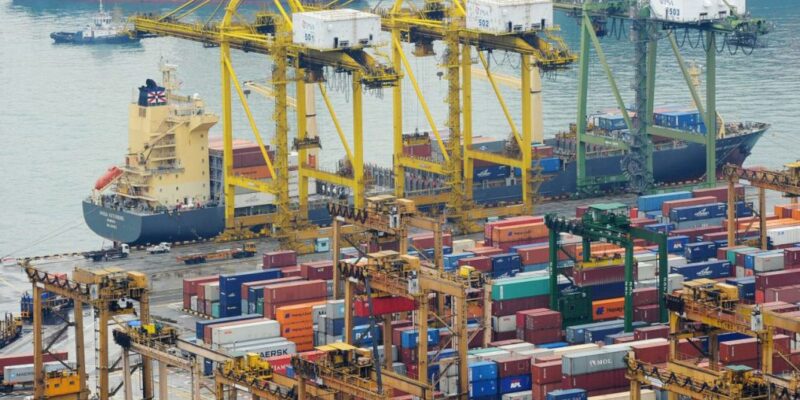
Nigeria is said to lose $15 billion each year owing to congestion and other maritime-related concerns at the country’s seaport. This is despite port users lamenting the growing number of waste dumps on Apapa port access roads recently renovated by Dangote Group.
Gridlock, multiple taxation, cargo diversion, delays and sluggish cargo delivery, high demurrage charges, difficult clearance processes and procedures, and significant business failure have all potentially resulted in revenue losses for the Nigeria Customs Service (NCS).
According to Amodu Adewale, a maritime expert based in the United Kingdom, Nigeria loses about $15 billion per year due to port congestion and other numerous challenges such as extortion, unreliable technology application, lack of transparency and predictability, and non-implementation of 24-hour port operations.
According to him, the African Centre for Supply Chain (ACSC) practitioners recently revealed that the nation’s Gross Domestic Product (GDP) is severely impacted by approximately $14.2 billion in annual losses at Nigerian ports due to congestion and other factors.
He stated that the hydra-headed difficulties, which are now considered everyday routine by many, necessitate a thorough evaluation of quick-resolution solutions.
However, he said that Federal Government agencies had ignored the port access roads, which had been taken over by rubbish.
“Today in place of its glorious past, distraught residents, traders and trailer drivers have turned nearly all access roads leading to Tin Can Island ports complex and Apapa Wharf into refuse dumpsites.
“This is the road that was just newly reconstructed by the Dangote Group. From Cele down to Tin Can Port, you see all manners of refuse dumped along the road. At the long stretch, refuse will have adverse effects on the road because the heat and the chemical coming out of the refuse will weaken the road and will eventually lead to its collapse,” he warned.
Meanwhile, Lucky Amiwero, National President of the National Council of Managing Directors of Licenced Customs Agents (NCMDLCA), noted that the issue of congestion in the port has been present for years and that the bottlenecks would not be alleviated until the Federal Government reorganizes the sector not politically, but professionally.
Bottlenecks, according to him, are trade facilitation requirements that are not being met, owing to the large number of government entities in the port.
“When we are talking about bottlenecks, it is a procedure of how things move from place to place and the various agencies who are in contact with cargoes and the cost of doing business, all those things are bottlenecks, which I cannot explain. They are too numerous and complex in Nigeria port that needs to be addressed. If you want to facilitate trade, you have to comply with the trade procedure, which is not done in this part of the country,” he added.
He stated that the issue of garbage and dustbins is the responsibility of the Nigerian Ports Authority (NPA) and that it is not anyone’s job to pack those refuse along the Port access road because port access roads are exclusive to NPA.
“I’ve said it before, it’s not Lagos State; it’s a port access road because NPA collects fees from that port and they’re the ones who make sure the road leading to the port is clear.”
“The road is an eyesore because it is the responsibility of NPA, not Lagos State Government because it is a port access road. Unless NPA is giving its responsibility to the Lagos State Government and that should be clearly defined. But once it is port access roads, NPA must make sure that those roads are cleared and to make the place traffic easy,” he said.

Comments